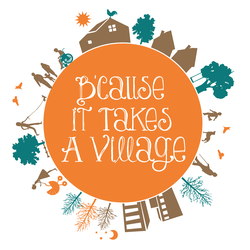Recently, I have had inquiries from people wanting to learn more about early childhood education as a field. Some asked about diploma, certificate and degree courses available in Malaysia. There are indeed a myriad of options for accredited course such as online or distance learning, blended programme, part-time and full-time courses).
If you do plan to study “early childhood education” formally, it’s good to be well versed terms and concepts that will be used – I myself researched the field and read several books before enrolling and I found that it helped me a lot. Twelve or six week semesters are just too short to fully grasp and then apply completely new concepts. Knowledge takes time to “sink in”, after all.
This blog series will be an introductory look at early childhood education. If you’re interesting knowing more about this field and the theories and research that guides early childhood practice and curriculum development in Malaysia and abroad, do subscribe to my blog and stay tuned for more. All posts about “Early Childhood Education” will be tagged as such. Also, you can comment with questions and any topics you’d like to me to cover on the blog.
After writing about minimum qualification for early childhood educators, I commented in a Facebook discussion that
…while teachers can be highly qualified, we still believe that parents are the first and most important teachers and that we play a supportive and complementary role
That is something I have incredibly true in my own experience as well. Hart and Risley (1995) found that some children, especially those from impoverish backgrounds, “heard thirty million fewer words by their 4th birthdays than others.” This “thirty million word gap”, as it is known, causes a wide disparity.
Children in a lower socioeconomic class hear about 30 million fewer words by age 4 than their counterparts, according to a famous 1995 study. University of Kansas researchers Betty Hart and Todd Risley discovered that children who heard more words were better prepared for school, and by third grade they had bigger vocabularies, were stronger readers and received higher test scores. The kids who started out ahead, stayed ahead. The kids who started out behind, stayed behind. – UChicago News

I believe, above all, that education does not belong to educators or education professionals. We who specialise in child development and learning serve the community at large by meeting needs and supporting parents and families. Parents are already experts and we have a high regard for the personal knowledge and intuition of parents. As a homeschool graduate, this is especially true from my own experience.
Homeschooling, for example, is not only about the parents and how they teach their own children, but about the community and how supportive we are, how encouraging we are, and what avenues we provide for children to be involved in activities have a real-world, real-life education.
For parents who are interested in child development and learning, there are many books, articles, studies and guides available to choose from. One option is to take a MOOC or free online course.
This online introductory course in Early Childhood Education is starting soon – it is run by the Australian NPO “Gowrie Victoria”. They run early childhood programmes and provide accredited training (this is not an accredited course, but is taught by professional educators and trainers).
Another on-going online course, “The Best Start in Life: Early Childhood Development for Sustainable Development”, has a very broad syllabus and is conducted by a group of academics from Harvard, NYU and UNICEF.
The amount of knowledge at our fingertips is truly revolutionary and world-changing. What are some of the resources (books and sites) about education that you have found helpful and informative?